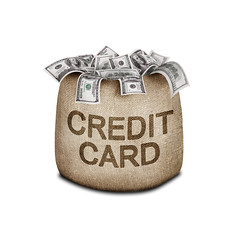- I miss electricity. #
- @prosperousfool Do you still need a dropbox referral? in reply to prosperousfool #
- @prosperousfool Dropbox: https://www.dropbox.com/referrals/NTE1Mjk2OTU5 in reply to prosperousfool #
- Don't let anyone tell you otherwise: Electricity is the bee's knees, the wasp's nipples and lots of other insect erogenous zones. #
- @prosperousfool Throw in a Truecrypt partition and the PortableApps launcher and it gets really neat. in reply to prosperousfool #
- @prosperousfool Universal accessibility. I put an encrypted partition on it so any receipts or credit card info or login info would be safe in reply to prosperousfool #
- RT @untemplater: RT @jenny_blake: Deep thought of the day: "How people treat you is their karma; how you react is yours." -Wayne Dyer #quote #
- @FARNOOSH So what's happening to the one good show on SOAPNet? in reply to FARNOOSH #
- RT @flexo: RT @mainstr: 1 million Americans have been swindled in an elaborate credit card scam and they may not know http://bit.ly/cr8DNK #
Debt Burnout
You’ve got a budget. You’ve got a debt repayment plan. You’ve been paying off your debt. You’ve even paid off a few of your smaller debts. Now you’re staring down the barrel of your big debts: your mortgage, a $30,000 credit card, maybe a car payment. You’re looking at months of payments with no quick wins; no more watching your debts die every few months. You’re in the middle of a very long slog.
All of the easy milestones have been reached and the next one is a year or more away. This is when debt repayment gets hard. How can you avoid getting burnt out doing the same thing, month after month, with no major visible progress?
1. Keep your eye on the prize. Try focusing on the end result, while ignoring the time it takes to get there. Do you have a reward planned for when you pay off your debt? If not, consider that to be your new shining goal-post. My wife and I plan on taking an Alaskan cruise when our debt is repaid.
2. Ignore the prize. If #1 doesn’t work for you, try focusing on just the current month’s progress. How much did you pay off this month? Was it more than last month?
3. Make micro-goals. Try breaking the long slog into bite-sized pieces. How fast can you pay off the next $1000? How many months will it take to pay off that TV you bought last year? Sometimes, meeting a smaller goal can make the whole works feel like it’s going by faster.
4. Take a snowball vacation. For just one month, take every dollar you would normally apply to your debt–except your required payments–and have some fun with it. Take a weekend trip, have a fancy dinner, or pick up that video game system you’ve been eying. Something. Anything to take your mind off of your repayment plan for a while. Be careful not to make this a habit or you will never get out of debt.
5. Start a blog to share your pain.
A debt snowball is a long, intense process. If you’re not careful, you can burn out and let the whole thing collapse. How do you avoid burnout?
Saving Money: The Warranty Fund
Last weekend, my DVD player died.
No big deal, right? We watch a lot of movies. We get a lot of enjoyment out of watching a lot of movies. Movies are fun for us. We’ve got a projector and a movie screen in our living room. Movies are our biggest pastime. Naturally, losing the movie machine hurts.
The thing that hurts the most is that this hasn’t been a good month for us, financially. My wife gets paid hourly, with semi-monthly paychecks. This means that, in a short month(like February!), her second paycheck is small by a few hundred dollars. When her company switched to that nonsensical plan, I watched for a few months, then set our budget to match the smallest paycheck she received. They haven’t been using this ridiculous plan for a full year, yet.
February caught me by surprise.
I know, it shouldn’t have. According to my research, there has been a February in every single year since well before I was born. I should have been expecting it. Oops.
So, to recap: our favorite pastime was dead and money was a little bit tight. There was no money to shake out of the budget to cover a new DVD player and there was no way we’d hit our emergency fund for something as frivolous—if enjoyable—as movies.
What to do?
About a year ago, I decided to start a warranty fund. There are things we can’t easily afford to replace, so we pay for warranties on some of them. For example, our cell phones have a repair plan, and that plan has saved us more than it has cost us. We have a repair plan for some of our appliances, and that, too, has saved more than it has cost us. My goal was to self-warranty my stuff. I wanted an account that had money that served no purpoase but to help me avoid paying for warranties.
I set up another ING Direct savings account and scheduled an automatic deposit. It’s only set to deposit $25 per month, but over a year, it was enough to replace our home theater system, with some left over. It is, quite simply, money to use when our stuff breaks.
With no warning, and no time to prepare, we still had enough money socked aside to handle one of life’s little surprises, without wrecking our plans.
How do you prepare to replace the things that are going to break?
Family Bed: How to Make It Stop
 baby on the cheek.” width=”300″ height=”199″ />
baby on the cheek.” width=”300″ height=”199″ />For years, my kids shared my bed.
When my oldest was a baby, I was working a graveyard shift, so my wife was alone with the baby at night. It was easy to keep a couple of bottles in a cooler by the bed and not have to get out of bed to take care of him when he woke up once an hour to drink a full bottle.
Then he got older. And bigger. And bigger.
We tried to move him to his own bed a few times, but it never worked well. He’d scream if we put him in a crib, so we got him a bed at 9 months old. That just meant he was free to join us whenever he woke up. Brat.
We finally got him to voluntarily move to his own bed after his sister was born. Shortly after she was born, I woke up to see him using her as a pillow. To paint the proper picture, this kid is 5’9″ and wears size 12 shoes. At 11. When I woke him up to tell him what he was doing, he decided to sleep in his own bed.
Method #1 to get your kids in their own bed: Have kid 1 try to crush kid 2 and feel bad about it.
Method #1 isn’t a great solution.
Soon, baby #3 showed up and we had 2 monsters in bed with us again. Once they started getting bigger, it became difficult for the 4 of us to sleep. We tried to get them into their own beds. Unfortunately, even as toddlers, my kids had a stubborn streak almost as big as my own. Nothing worked.
Eventually, they got big enough that I was crowded right out of the bed. At least we had a comfortable couch.
Sleeping on a couch gets old.
When the girls got old enough to reason with, we had a choice: We either had to find a way to convince them they wanted to sleep in their own room, or we had to have a fourth brat for them to attempt to crush at night.
We went with bribery. Outright, blatant bribery.
We put a chart on the wall with each of their names and 7 boxes. Every night they slept in their own beds, they got to check a box. When all of the boxes were checked, they got $5 and a trip to the toy store.
It took 10 days to empty our bed and it’s been peaceful sleeping since. That’s $5 well-spent.
Have you done a family bed? How did it work? How long did it last?
The Happy Butt
Do you find the cloud in every silver lining? Is the glass not only half empty, but evaporating? Do you start every day thinking

about how the effects of entropy on the universe make everything you do ultimately pointless?
You may be a pessimist.
Pessimism gets a bad rap. Without pessimists, we wouldn’t have insurance plans, missile defense systems, or Eeyore, and what would the world be without those things?
The thing you have to ask yourself is “Does the negativity make you happy?”
The next thing you have to ask yourself is whether or not you were lying with your previous answer.
If you have a negative outlook on everything, I have good news for you: it’s possible to defeat it. No matter how long you’ve been looking at the world through coffin-colored glasses, no matter how ingrained your negative slant is, it’s possible to change it.
You have to want to change it, because, as the saying goes, old habits die hard. Yippee kai yay.
You need a happy butt.
Little known fact: language shapes the way you think. If your language has no words for a concept, you will have a difficult time thinking about that concept, or even understanding it. Statistically, Asians are better at math than their western-world counterparts. Why? It’s not genetic. When a family moves to the US, the edge is lost within 2 generations. It’s not the amount of school they get. Even in backwaters with limited school access demonstrate the same abilities.
It’s the language. Euro-based languages are horrible. They are a clumsy mish-mash of crap from around the world, and the numbering system makes no sense. 11, 12, 13, huh? Spoken, that’s not a progression, it’s something we have to learn by rote. Why is 13 pronounce “thirteen”, with the ones place first, but 23 is pronounced with the tens place first, the way it is written? Where did the word “twenty” even come from? It’s obviously a horrible bastardization of “two” and “ten”, but is it self-evident? Does the progression through the decades follow some kind of rule? Twenty, thirty, forty, fifty. Nope.
The Asian languages (most of them) differ. The numeric progression is spoken in a rules-based progression that makes sense. 23 is literally “two tens three”, making learning math less about rote memorization and more about masters some simple rules.
In the western world, we are handicapped by our language, at least when it comes to math.
The rest of our thoughts are formed by language, too. Learn a language with different roots than the one your were born with and see how your perceptions change.
One of the signs of negative thinking is qualifying everything you say negatively. For example, one person might say “It’s a beautiful day, today” while Mr. Negativebritches would say “It’s a beautiful day, but it’s probably going to rain.” That’s a sad butt, err, but. Every time you qualify a sentence with a sad butt, you are reinforcing your negative view of the world.
The solution? Drop your drawers and paint on a smiley face. You need a happy but(t). You can rephrase the sentence into a happy thought without changing the sentiment or meaning in any way. Try this: “It’s probably going to rain, but it’s a beautiful day, now.” That’s a happy butt, and it reinforces the positive in your mind.
It sounds stupid, but it works. Your language shapes your life. Put a positive spin on what you say, and you will eventually start to think about life in a positive way.
Give it a shot. For the next week, every time you say something negative, qualify it with a happy butt. At the end of the week, come back here and tell me how it’s working and if you can sense a change in your mindset.
Back to Cash
It appears that I can’t be trusted with a credit card.

At least, not a credit card that gets used for our regular shopping.
Over the past few months, our spending has slipped past our budget by more than I like. The problem appears to be that it’s really easy to toss “just one more thing” in the cart when there’s no hard limit on how much is available to spend at the register.
If you do that a few time, it’s easy to find yourself $1000 over budget.
Ouch.
If it weren’t for my side hustles, we’d have been growing our debt recently.
As of the beginning of this month, our credit card has once again been relegated to automatic bills, the gas station and online purchases.
No more groceries, no more scrapbooking stuff, and no more restaurants.
I would have done this sooner, but we were so far over budget that I didn’t have the cash to yank out all at once to cover our month’s expenses. We ended last month at a good place, so I went for the clean break and withdrew all of our day-to-day spending on the first. When I got home, it went straight into envelopes so we know what we’ve got to spend this month.
Bye-bye, credit cards!






